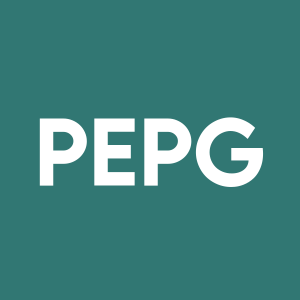PepGen Announces Positive Data from Low-Dose Cohort of PGN-EDO51 in Ongoing CONNECT1-EDO51 Phase 2 Clinical Trial for Treatment of Duchenne Muscular Dystrophy
– PGN-EDO51 at 5 mg/kg was well tolerated, and all patients continued to long-term extension portion of trial. Dosing of second cohort at 10 mg/kg is ongoing –
– Four doses of PGN-EDO51 at 5 mg/kg achieved mean exon skipping levels of
– PGN-EDO51 at 5 mg/kg showed mean muscle-adjusted dystrophin level of
– PGN-EDO51 at 5 mg/kg showed mean absolute dystrophin level of
– Conference call scheduled for 4:30 p.m. ET –
“We are encouraged by the early data from our CONNECT1 clinical trial of PGN-EDO51 in people with DMD. In three months, the starting monthly dose of 5 mg/kg achieved high levels of exon skipping and all patients showed increases in dystrophin. PGN-EDO51 produced meaningfully higher levels of exon skipped transcript at lower doses and in a shorter time period compared to other exon 51 therapies, approved and in development, indicating that our Enhanced Delivery Oligonucleotide technology is delivering higher levels of oligonucleotide to the nuclei,” said James McArthur, Ph.D., President and CEO of PepGen. “Importantly, PGN-EDO51 has demonstrated a favorable safety profile, supporting our ongoing evaluation of the 10 mg/kg monthly dose cohort in CONNECT1. We intend to leverage the early observations from CONNECT1 to optimize our CONNECT2-EDO51 Phase 2 trial. Based on these initial results, we are optimistic about the possibility that higher levels of dystrophin production will be observed in the 10 mg/kg cohort of CONNECT1. We also look forward to reporting data from the first cohort of our placebo-controlled multinational study CONNECT2.”
“People with DMD and their families constantly hope for effective therapies with the potential to change the course of this relentlessly progressive neuromuscular disease. I was pleased to see that the 5 mg/kg dose was well tolerated and that all three participants demonstrated an increase in dystrophin production and exon skipping after only three months of treatment with PGN-EDO51. I look forward to seeing the results of exon skipping and dystrophin production at 10 mg/kg in both CONNECT1 and CONNECT2,” said Dr. Hugh McMillan, Pediatric Neurologist at the Children’s Hospital of
CONNECT1 Results for the 5 mg/kg Starting Dose Cohort (n=3)
Exon 51 Skipping and Dystrophin Production Data
-
Exon 51 Skipping: PGN-EDO51 produced mean exon skipping in biceps tissue of
2.15% at week 13 compared to baseline. Compared to a receptor mediated delivery technology which delivered comparable levels, on a per-dose basis, of oligonucleotide to muscle tissue, we believe the levels of exon skipping generated by PGN-EDO51 at 5 mg/kg suggest PGN-EDO51 has the potential to be considerably more potent.1
-
Dystrophin Production
-
PGN-EDO51 achieved a mean muscle-adjusted dystrophin level of
1.49% of normal and a0.70% change from baseline after 4 doses, measured at week 13. -
PGN-EDO51 achieved a mean absolute dystrophin level of
0.61% of normal and a0.26% change from baseline after 4 doses, measured at week 13 by Western blot analysis.
-
PGN-EDO51 achieved a mean muscle-adjusted dystrophin level of
Safety and Tolerability Data
The 5 mg/kg dose of PGN-EDO51 was well tolerated by all study cohort participants through week 13. There were no discontinuations, dose interruptions or dose reductions.
- The one related treatment-emergent adverse event was mild and resolved.
- There was no sustained elevation in kidney biomarkers. There were no cases of hypomagnesemia or hypokalemia. There were also no changes in electrolytes or hepatic function and no cases of anemia or thrombocytopenia.
- All three patients in this cohort are continuing to be dosed with PGN-EDO51 at 5 mg/kg in the long-term extension (LTE) phase of the clinical trial. PGN-EDO51 continues to be well tolerated during the LTE as of July 29, 2024.
The Company plans to present additional results from the 5 mg/kg cohort at a medical meeting later in the year.
Update on PGN-EDO51 10 mg/kg Cohort
As of July 29, 2024, two participants have received a total of four doses at 10 mg/kg in the ongoing CONNECT1 study. To date, PGN-EDO51 has been generally well tolerated at this dose level and the Company expects to report initial results from the 10 mg/kg cohort in early 2025.
Update on CONNECT2-EDO51 Clinical Trial
Based on the data from CONNECT1, including PGN-EDO51’s emerging safety profile to date, the Company is working to optimize the design of the CONNECT2 Phase 2 double-blind, placebo-controlled 25-week multinational trial. The CONNECT2 clinical trial is open in the
Conference Call Details
PepGen will host a conference call and webcast today at 4:30 p.m. ET to review the data being presented. To access the call, please dial (866) 400-0049 and provide the Conference ID 9666330. A live webcast of the presentation will be available on the Events & Presentations section of the PepGen investor website, investors.pepgen.com.
About PGN-EDO51
PGN-EDO51, PepGen's lead clinical candidate for the treatment of Duchenne muscular dystrophy (DMD), utilizes the Company's proprietary Enhanced Delivery Oligonucleotide (EDO) technology to deliver a therapeutic phosphorodiamidate morpholino oligomer (PMO) that is designed to target the root cause of this devastating disease. PGN-EDO51 is designed to skip exon 51 of the dystrophin transcript, an established therapeutic target for approximately
About the CONNECT Clinical Program
CONNECT1-EDO51 is an open-label, multiple ascending dose Phase 2 trial designed to evaluate PGN-EDO51 at up to three different dose levels starting with 5 mg/kg administered intravenously once every four weeks for 12 weeks in patients with DMD amenable to an exon 51-skipping approach. The key endpoints for this trial are safety, dystrophin production and exon skipping. Multiple pharmacokinetic parameters are also being assessed as part of the trial protocol.
CONNECT2-EDO51 is a double-blind, placebo-controlled, multiple ascending dose, multinational Phase 2 trial designed to evaluate PGN-EDO51 at up to three different dose levels intravenously once every four weeks for 24 weeks in patients with DMD amenable to an exon 51-skipping approach. Endpoints included in this trial are safety, dystrophin production, exon skipping and clinical assessments of mobility, pulmonary function and quality of life.
About Duchenne Muscular Dystrophy (DMD)
DMD is an X-linked recessive muscle-wasting disease that predominantly affects males. This progressively debilitating and fatal disease is caused by genetic mutations in the gene encoding dystrophin, a protein critical for healthy muscle function, and is one of the most prevalent rare genetic diseases, with an incidence rate of approximately one in every 3,500 to 5,000 male births. DMD is characterized by progressive muscle weakness, which leads to patients losing the ability to walk, a loss of upper body function, cardiac issues and difficulties breathing. DMD is invariably fatal by young adulthood. Despite significant advances in treatments for this devastating disease, current exon skipping therapies are limited by poor delivery to muscle tissue nuclei and have yet to establish meaningful clinical benefit for DMD patients.
About PepGen
PepGen Inc. is a clinical-stage biotechnology company advancing the next-generation of oligonucleotide therapies with the goal of transforming the treatment of severe neuromuscular and neurological diseases. PepGen’s Enhanced Delivery Oligonucleotide (EDO) platform is founded on over a decade of research and development and leverages cell-penetrating peptides to improve the uptake and activity of conjugated oligonucleotide therapeutics. Using these EDO peptides, we are generating a pipeline of oligonucleotide therapeutic candidates designed to target the root cause of serious diseases.
For more information, please visit www.pepgen.com. Follow PepGen on LinkedIn and X.
Forward-Looking Statements
This press release contains forward-looking statements within the meaning of the Private Securities Litigation Reform Act of 1995, as amended. These statements may be identified by words such as “aims,” “anticipates,” “believes,” “could,” “estimates,” “expects,” “forecasts,” “goal,” “intends,” “may,” “plans,” “possible,” “potential,” “seeks,” “will,” and variations of these words or similar expressions that are intended to identify forward-looking statements. Any such statements in this press release that are not statements of historical fact may be deemed to be forward-looking statements. These forward-looking statements include, without limitation, statements regarding the therapeutic potential and safety profile of PGN-EDO51 based on early data, the potential of our EDO platform to deliver higher levels of oligonucleotide to the nuclei, our expectations regarding the potential for increased levels of exon skipping and dystrophin production following dosing at 10 mg/kg with a longer treatment period, the design, initiation and conduct of clinical trials, including expected timelines for our CONNECT2 Phase 2 trial, the expected timing for additional data reports from our CONNECT1 trial, and ongoing and planned regulatory interactions.
Any forward-looking statements in this press release are based on current expectations, estimates and projections only as of the date of this release and are subject to a number of risks and uncertainties that could cause actual results to differ materially and adversely from those set forth in or implied by such forward-looking statements. These risks and uncertainties include, but are not limited to risks related to: delays or failure to successfully initiate or complete our ongoing and planned development activities for our product candidates, including PGN-EDO51; our ability to enroll patients in our clinical trials, including CONNECT1-EDO51 and CONNECT2-EDO51; that our interpretation of clinical and preclinical study results may be incorrect, or that we may not observe the levels of therapeutic activity in clinical testing that we anticipate based on prior clinical or preclinical results; our product candidates, including PGN-EDO51, may not be safe and effective or otherwise demonstrate safety and efficacy in our clinical trials; adverse outcomes from our regulatory interactions, including delays in regulatory review, clearance to proceed or approval by regulatory authorities with respect to our programs, including clearance to commence planned clinical studies of our product candidates, or other regulatory feedback requiring modifications to our development programs, including in each case with respect to our CONNECT1-EDO51 and CONNECT2-EDO51 programs; changes in regulatory framework that are out of our control; unexpected increases in the expenses associated with our development activities or other events that adversely impact our financial resources and cash runway; and our dependence on third parties for some or all aspects of our product manufacturing, research and preclinical and clinical testing. Additional risks concerning PepGen’s programs and operations are described in our most recent annual report on Form 10-K and quarterly report on Form 10-Q that are filed with the SEC. PepGen explicitly disclaims any obligation to update any forward-looking statements except to the extent required by law.
- DYNE-251 DELIVER clinical data update, May 20, 2024
View source version on businesswire.com: https://www.businesswire.com/news/home/20240730713512/en/
Investors
Dave Borah, CFA
SVP, Investor Relations and Corporate Communications
dborah@pepgen.com
Media
Julia Deutsch
Lyra Strategic Advisory
Jdeutsch@lyraadvisory.com
Source: PepGen Inc.







